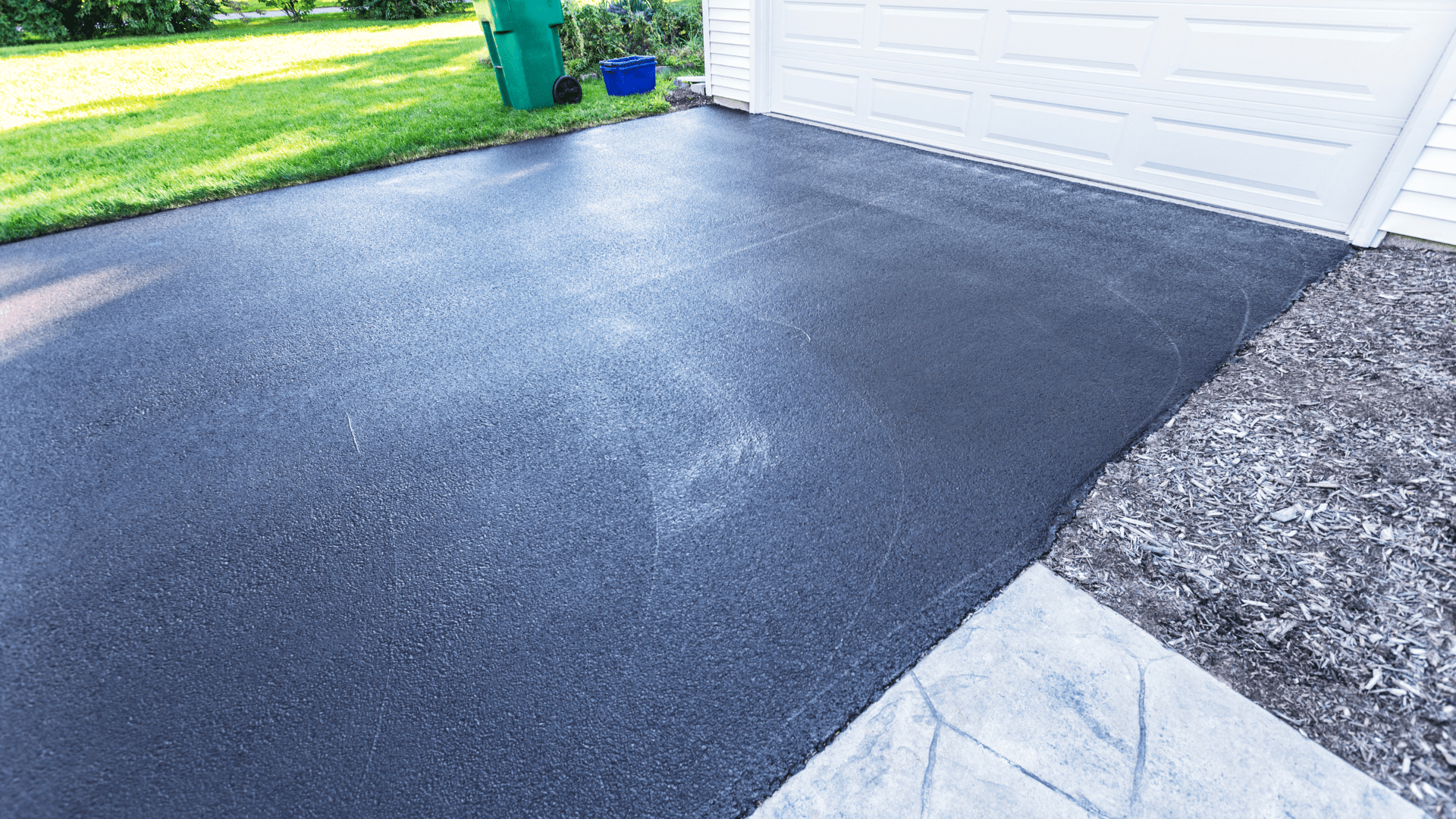Your asphalt driveway is more than just a functional element of your property—it’s also a key contributor to curb appeal and home value. However, like all parts of your home, asphalt driveways experience wear and tear over time. Identifying the signs of damage early can save you time, money, and headaches in the long run. Let’s dive into five key indicators that your driveway might need professional attention.
1. Cracks: The Warning Signs You Shouldn’t Ignore
Cracks are among the most common problems homeowners encounter with asphalt driveways. They might start small, but over time, even minor cracks can expand and lead to significant structural issues.
Causes of Cracks:
- Weather Extremes: Temperature fluctuations cause asphalt to expand and contract, leading to surface cracks.
- Heavy Loads: Regular exposure to heavy vehicles or machinery can weaken the surface over time.
- Improper Installation: A poorly laid foundation may lead to premature cracking.
What to Watch For:
- Hairline Cracks: While minor, these can widen as water seeps in and freezes.
- Alligator Cracks: Resembling the scales of an alligator, this pattern often indicates deeper structural issues.
Ignoring cracks allows water to infiltrate the sublayer, which can cause further deterioration. If you notice a network of cracks, it’s time to call a professional for an evaluation.
2. Potholes: A Hazard to Safety and Vehicles
Potholes are more than an eyesore—they’re a safety hazard for anyone using your driveway. They can damage vehicles, cause tripping accidents, and indicate severe structural failure in the pavement.
How Potholes Form:
- Water Damage: Water seeps into the asphalt and erodes the base layers.
- Repeated Stress: Continuous traffic over weakened areas accelerates the formation of potholes.
The Risks of Neglect:
- Allowing potholes to remain can worsen the damage as more water infiltrates and weakens the surrounding asphalt.
- They also make your property look neglected, which could affect its value.
Small potholes might be reparable, but if you notice several large ones, a replacement may be necessary.
3. Fading and Discoloration: A Sign of Aging
Over time, your once-dark, sleek asphalt driveway may begin to fade and lose its visual appeal. While discoloration may seem purely cosmetic, it’s often a sign of underlying issues.
Why Asphalt Fades:
- UV Rays: Prolonged exposure to sunlight causes the binding agents in asphalt to break down.
- Oxidation: Natural aging causes the surface to become brittle and lose its flexibility.
When to Act:
- If the fading is paired with cracks or crumbling edges, it’s a sign that the driveway’s structural integrity is compromised.
- Sealcoating can restore the appearance and extend its life, but advanced fading often indicates the need for resurfacing or replacement.
Maintaining your driveway’s rich black color isn’t just about aesthetics—it’s about protecting the asphalt from further deterioration.
4. Drainage Issues: Water Is Your Driveway’s Worst Enemy
Water is one of the most damaging forces to asphalt driveways. Proper drainage ensures that water doesn’t pool or seep into the surface, causing cracks, erosion, and potholes.
Signs of Poor Drainage:
- Puddles: Water pooling on the surface after rain is a clear sign of drainage problems.
- Erosion at the Edges: Water running off the driveway can erode the base material, leading to uneven edges and cracking.
Long-Term Damage:
- Poor drainage doesn’t just ruin your driveway; it can also affect surrounding landscaping and foundations.
- Addressing drainage issues may require more than patching—it might involve regrading the area or replacing the driveway altogether.
If you’re consistently battling standing water, it’s time to consult professionals to assess the severity of the problem.
5. Age: Know When It’s Time to Say Goodbye
Asphalt driveways have a typical lifespan of 15–20 years, depending on maintenance and environmental factors. If your driveway is approaching or surpassing this age range, repairs may no longer be cost-effective.
Indicators of Aging:
- Widespread Cracks: A network of cracks indicates the driveway is nearing the end of its life.
- Frequent Repairs: If you’re repeatedly patching the same issues, replacement might be the smarter investment.
- Structural Instability: Uneven surfaces and sunken areas are often signs that the base layer has deteriorated.
While routine maintenance can extend the lifespan of an asphalt driveway, there comes a point when replacement is the most cost-effective and long-lasting solution.
The Bottom Line: Don’t Wait to Act
An asphalt driveway in disrepair isn’t just an inconvenience—it can lead to higher costs and safety risks if left unaddressed. Whether it’s minor cracks, major potholes, or signs of aging, acting quickly can save you money and prevent further damage.
Get Expert Help with SK Asphalt & Concrete
If you’ve noticed any of these signs in your driveway, it’s time to reach out to the experts. At SK Asphalt & Concrete, we specialize in driveway repairs and replacements tailored to your needs.
Don’t let a damaged driveway affect your property’s safety and value. Contact SK Asphalt & Concrete today and let us bring your driveway back to life!

